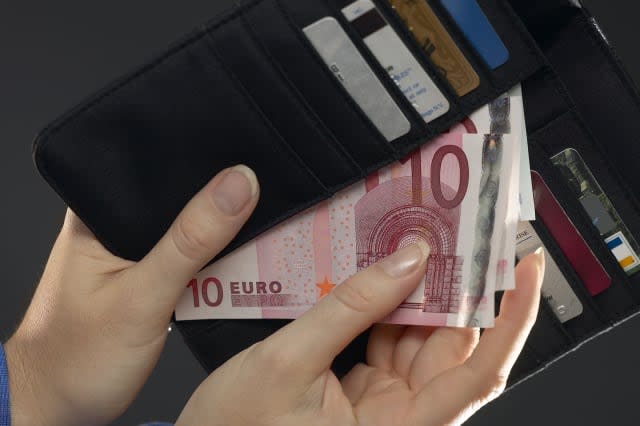Get the best deal on your holiday cash

Uncertainty about Brexit and the prospect of the Bank of England cutting interest rates has weakened the pound against lots of other currencies - making overseas holidays more expensive for us Brits this summer.
But there are ways to ensure you get the most bang for your buck when buying your travel money. Here are our top tips...
Buy in advance
Leaving buying your foreign currency to the last minute could prove a costly mistake.
New research from Sainsbury's Bank indicates that Britons travelling to the Eurozone in June, July and August this year could miss out on €265 million (£223 million) by waiting until they are at the airport to change their pounds.
The supermarket bank found that Euros are on average 7.3% cheaper bought from a local bureau than from an airport kiosk, highlighting the importance of purchasing holiday money in advance.
Simon Taylor, Head of Travel Money at Sainsbury's Bank said: "Our analysis shows that on average holidaymakers could save €42 per transaction by getting their money in advance – enough for a lunch for two in Spain or perhaps a few drinks in France."
Shop around for the best deal
Another advantage of planning ahead is that you can shop around to get the best exchange rates and pay the lowest charges.
Look for a provider that offers 0% commission, and check online to find the best rates.
Online companies such as Travelex can often beat the rates you can find on the high street, and will even deliver foreign currency direct to your door if you are changing at least say £500.
If you're worried about carrying too much cash, you can also get prepaid foreign currency cards that allow you to spend and withdraw money while you are away.
Apply for an overseas usage credit card
Credit cards can be a very convenient way to spend money overseas. But spending on a credit or a debit card while abroad can prove expensive due to foreign usage fees.
Most debit and credit cards add a 3% charge, meaning spending £100 in euros or dollars, for example, costs you £103.
Fortunately, there are cards designed specifically for overseas usage, on which there are no or low foreign usage fees.
These include the Halifax Clarity MasterCard, the Creation Everyday card, and the MBNA Everyday Plus card.
Avoid dynamic currency conversion
When you pay for something by card overseas, the card machine will often ask you whether you would like to pay in pounds, or in the local currency.
Choosing to pay in pounds means that you are using what is known as dynamic currency conversion, and will allow you to see exactly how much will be charged to your account for that particular transaction.
However, it is generally better to choose to pay in the local currency, as this will cost you less overall.
This is because the exchange rate provided by the retailer if you opt to pay in pounds is usually much poorer than the one you would receive from your bank.




